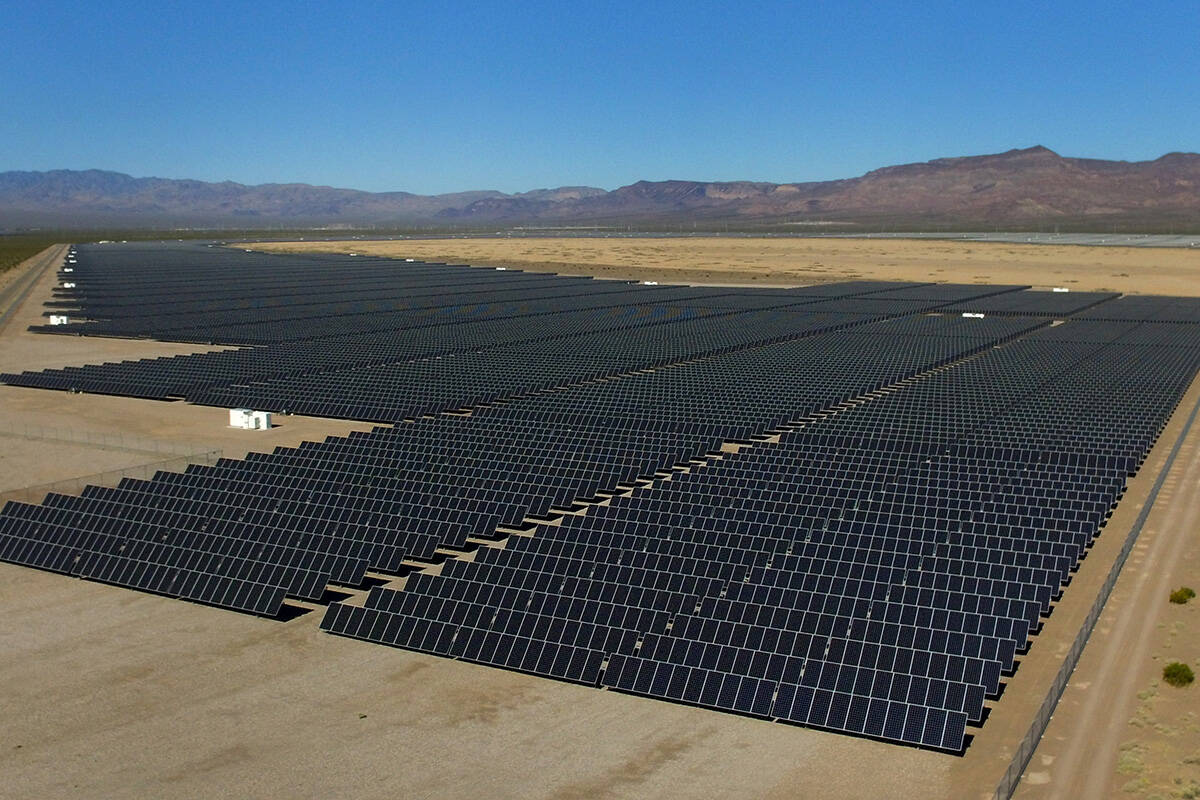VICTOR JOECKS: Green mandates are leading to electricity shortages
If environmentalists were truthful about the downside of green energy mandates, they’d be more unpopular than President Joe Biden.
Last weekend, the power went out in my neighborhood and my A/C stopped working. The temperature in the house started to climb. I worried about how much cold air we’d lose opening the fridge to get out something for dinner. The lights wouldn’t turn on. As I checked NV Energy’s website for updates, I wondered if my phone battery would last until the power returned.
The biggest difficulty came at bedtime. It had grown uncomfortably warm in the house, making it difficult for our younger kids to sleep. Then we realized that, even if we got them to bed, there was no way they’d actually sleep without a light on. That was it. We loaded everyone in our van and drove around, enjoying some cold air.
This isn’t a “woe is me” tale. It was an inconvenience that lasted for a few hours. It was also a vivid reminder of how integral electricity is in our everyday lives. That’s especially true when the temperature spikes to 110 degrees or more. Without air conditioning, Las Vegas wouldn’t exist as a global destination for summer tourists.
When you think about it like that, the importance of electricity is obvious. You might assume, then, that state and local politicians would do everything they can to ensure Southern Nevada residents had reliable power, especially when temperatures soar. After all, the hotter it gets, the more demand increases. Nope.
For years, many progressives have pushed for renewable portfolio standards, requirements that states use ever-more energy from green sources such as solar and wind power. They’ve been wildly successful in this effort. In 2020, Nevada voters approved a constitutional amendment requiring 50 percent of the state’s power to come from renewable sources by 2030. The Legislature passed a similar measure in 2019.
Proponents of Nevada’s portfolio standards claimed they would help the economy, create jobs and provide cheaper electricity. Astute readers might notice this paradox: If renewable energy is so wonderful, why do its proponents insist on mandating it?
For one, there’s a downside its supporters fail to mention: Renewable energy isn’t reliable.
Over the past week, Texas experienced a major heat wave. Energy officials twice resorted to begging residents to save power. You might associate Texas with oil and gas. But over the past 15 years, the state has seen major growth in wind energy. Texas now generates more wind energy than any other state.
But when high pressure creates extreme heat, the wind often stops blowing. That’s a problem. Over the past week, wind energy fell to just 8 percent of its potential output. That doesn’t happen with fossil fuel or nuclear power plants.
Solar energy is more widespread in Nevada. But solar can’t be counted on either. On Wednesday, the second day officials requested conservation, solar energy dropped off in Texas as clouds covered some in-state solar plants.
This is a the problem: Renewable energy frequently doesn’t provide electricity when it’s needed most. If members of the public understood that, its popularity would plummet.
Unfortunately, Nevada is likely to learn this lesson the hard way. In 2020 and 2021, NV Energy had to ask consumers to use less power when temperatures spiked.
As Nevada’s dependence on renewable energy increases, expect requests to limit electricity usage to increase as well. There could even be brownouts or blackouts. Don’t let politicians blame that on high demand. In fact, Nevada and other states have — at the expense of more reliable sources — built up renewable energy capacity, which can falter when demand is highest.
It’s easy to take electricity for granted, but as I experienced last week, you’ll really miss it when it’s not available.
Contact Victor Joecks at vjoecks@reviewjournal.com or 702-383-4698. Follow @victorjoecks on Twitter.





























